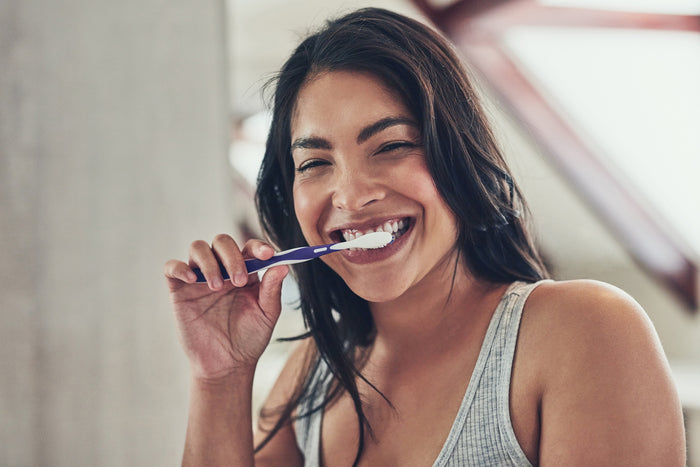How Often Should I Replace My Toothbrush Head?

Knowing when to change your toothbrush is important and ensures that you’re giving your teeth and gums the best possible treatment, but how do you know when the time is right? The answer might feel simple, but the guidelines for the amount of time that your toothbrush remains effective can be affected by various factors! Read on to learn which signs to look out for when thinking about changing your toothbrush!
Disposable vs. Electric
While there are no specific differences between disposable and electric brushes when it comes to how long you can safely use them for, there is a major difference in how your regular brush replacement affects the environment! Although manual toothbrushes are handy and simple to use, they also make up a great deal of waste, and if they are made of plastic can take many years to break down! To lessen the amount of plastic waste you’re putting out into the world, consider switching to an electric toothbrush, as the heads are made from significantly smaller pieces of plastic. Small steps lead to big changes! You can keep it economical for yourself by buying bundles of spare heads, rather than getting these one at a time as needed - you’ll save yourself some money, and ensure you always have a spare when a change is needed!
Look for the Signs
Splayed bristles are an obvious sign that your toothbrush or toothbrush head need changing, stat! Dentists advise that you should change your toothbrush head every three months or so, so if you find that your bristles are splaying out after a month or two you may need to reassess the amount of force you are using when brushing your teeth. Remember! Grasp your toothbrush firmly and brush gently at a 45° angle to keep your teeth clean and safe from abrasion.
Following Sickness
Despite regular cleaning, bacteria and germs can gather and grow on your toothbrush head, especially if you’re unwell. Fungus and bacteria can get stuck in the bristles of your brush and keep you sick for longer, so if you are in the recovery process after a cold or flu, make sure to switch out your toothbrush head for a new, clean one!
Keep it Clean
The best way to maintain your toothbrush and avoid bacteria forming on the bristles is by properly rinsing it after every use. A simple rinse under tap water can remove excess toothpaste and saliva, which carry germs, off the bristles of your brush. Keeping your toothbrush upright is also essential as this allows the bristles the opportunity to dry off before the next use! If you are often travelling or on the go, consider investing in a Sonisk Pulse portable toothbrush, as the antimicrobial travel cap will keep it clean and free of bacteria wherever you are!



